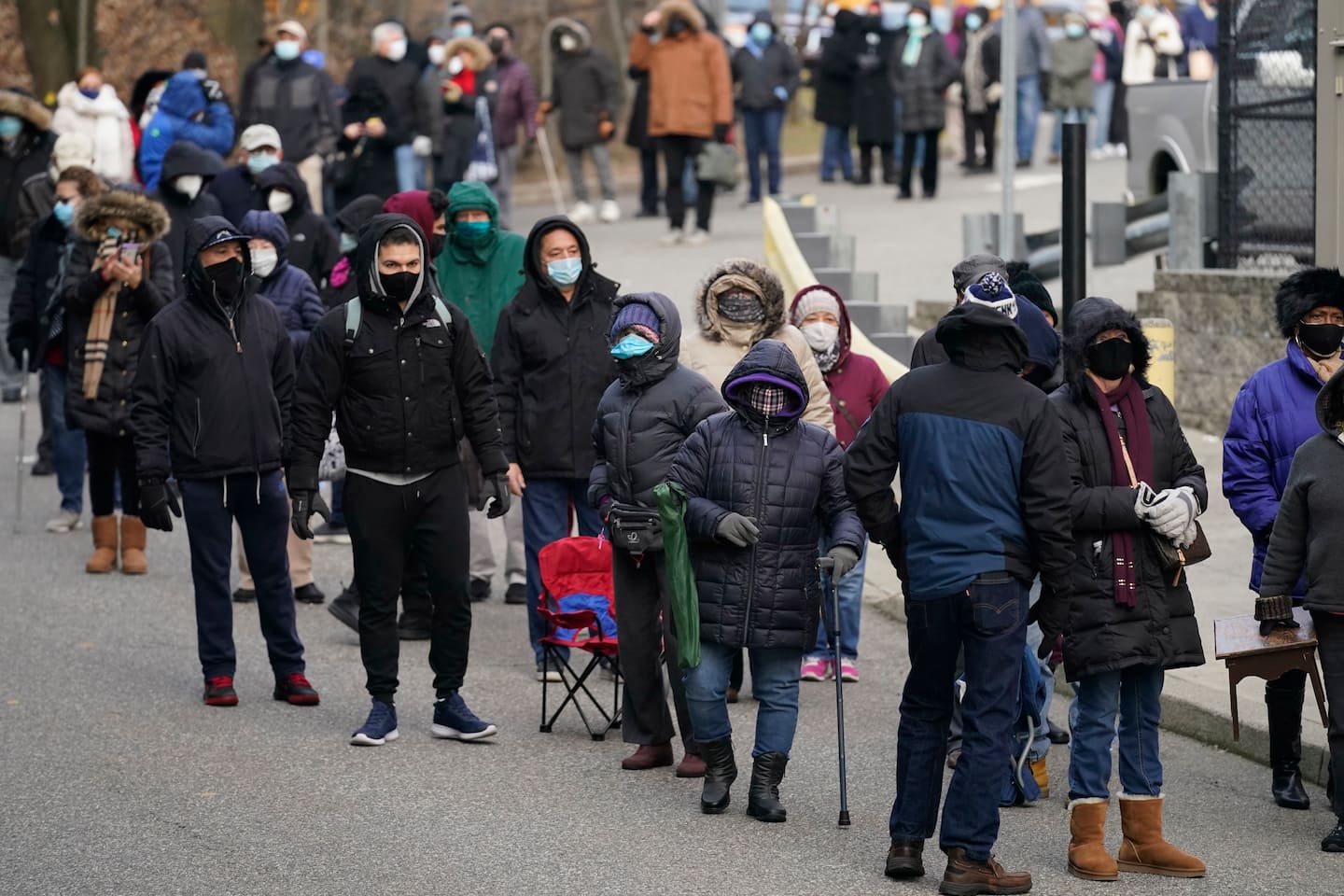Walmart, Starbucks, Amazon and other corporate giants moving to speed up coronavirus vaccine rollout

The early stages of vaccine distribution under the Trump administration were marked by confusion and miscommunication. Poor coordination between the federal government and states led to shortages in some regions, while severe bottlenecks left others rushing to deliver doses before they expired. Now, as vaccines remain hard to get and the pandemic continues to weigh on the economy, corporate giants are tapping their logistical and technological resources to help fast-track vaccinations to their communities.
Walmart, the world’s biggest retailer, has been preparing to offer the vaccine at 5,000 U.S. locations. Starting this week, the retailer is making inoculations available through its stores in seven states, plus Chicago and Puerto Rico. Walmart said it expects to deliver 10 million to 13 million doses a month, “when supply and allocations allow,” through its pharmacies and events in underserved communities.
“Walmart has the reach and the qualified, trained pharmacists and pharmacy staff to partner with community organizations to provide vaccination services at third party locations like churches, stadiums and youth centers,” the retailer said Friday in a news release.
“With 150 million people passing through our doors each week, we’re in a unique position to reach people where they already shop.”
This week, Washington Gov. Jay Inslee (D) announced a public-private alliance with Starbucks, Microsoft, Costco and other homegrown brands to deliver vaccines in the state “as effectively and efficiently as possible.” Meanwhile, Amazon said it is partnering with a Seattle hospital to deliver as many as 2,000 vaccinations to the public this weekend through a pop-up clinic.
“Big retailers are in an ideal position to help with the vaccine rollout because their core businesses are already geared around serving millions of customers day in and day out. They have locations right across the country and they have national distribution and logistics networks that are efficient and effective in getting products to every corner of the nation,” Neil Saunders, managing director of Global Data Retail in New York, said in comments emailed to The Post.
“They’re basically already doing what the government needs to do with vaccines. Moreover, a lot of the very big firms like Amazon and Walmart employ so many people that they can kick-start the program by vaccinating their own staff.”
Nearly two-thirds of adults believe the government is doing a “fair” or “poor” job distributing vaccines to states, according to a poll conducted last week by the Kaiser Family Foundation. Sixty percent rated their own states negatively in distribution efforts. Most people who have yet to get the vaccine say they don’t have enough information about when it will become available to them.
Amazon said it hopes this weekend’s pop-up clinic at the company’s Seattle headquarters, which is being done in partnership with Virginia Mason Medical Center, will be the first of many. (Jeff Bezos, Amazon’s founder and chief executive, owns The Washington Post.)
In a letter to Biden on Wednesday, Dave Clark, Amazon’s worldwide consumer CEO, said the company is “prepared to leverage our operations, information technology, and communications capabilities and expertise to assist your administration’s vaccination efforts.”
“Our scale allows us to make a meaningful impact immediately in the fight against COVID-19, and we stand ready to assist you in this effort.”
At the Washington State Vaccine Command and Coordination Center, Starbucks, Microsoft and Costco are partnering with labor leaders and health officials to achieve the state’s goal of 45,000 daily vaccinations. Microsoft offers “technology expertise and support,” while Costco assists with delivery through its pharmacies, and Starbucks aids in “operational efficiency, scalable modeling and human-centered design expertise,” according to a news release from Inslee’s office.
“This is an opportunity to serve others and have impact on a significant humanitarian effort,” said Kevin Johnson, Starbucks president and chief executive. “Governor Inslee has convened some of the best public and private resources and capabilities to engage in a concerted effort to optimize and accelerate the vaccination process across our home state. We are proud to contribute in every way we can to help operationalize and scale equitable access to the vaccine.”
CVS, Kroger, Rite Aid and Walgreens are all playing a role in vaccine distribution, some through their own pharmacies and others through government partnerships at locations such as long-term-care facilities. Other big names have donated facilities for mass inoculations: In California, Disneyland and the home stadiums of the Los Angeles Dodgers and the San Diego Padres have been converted into major inoculation centers. Several other sports venues, including State Farm Stadium in suburban Phoenix, Minute Maid Park in Houston and Hard Rock Stadium in Miami Gardens, Fla., have been used as vaccine hubs.
The Biden administration is gearing up get 100 similar sites running in the coming weeks. According to a draft “Concept of Operations” obtained by The Post, the Federal Emergency Management Agency would mobilize thousands of clinical and nonclinical personnel to work “hand-in-glove with the National Guard and state and local teams to assist, augment, and expedite the distribution and administration of coronavirus vaccines.”
Amazon, Walmart, Starbucks and other major corporations have aggressively lobbied states and the federal government to gain early vaccine access for their workers amid limited supplies. Amazon and Walmart did not immediately respond to requests for comment.
Grocery workers and front-line workers who cannot work remotely are among the groups being given vaccine priority by the Centers for Disease Control and Prevention. Nearly 375 front-line workers have died from the coronavirus since the pandemic began, according to the latest figures from the United Food and Commercial Workers Union, which represents 1.3 million workers in grocery, meat processing, retail and other industries. At least 69,000 workers have been exposed.






